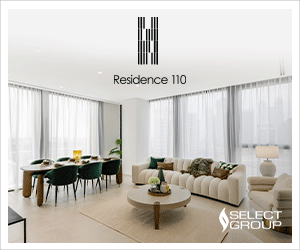Much has been said and discussed how COVID-19 impacted the Dubai real estate industry. Due to the lockdown and restrictions imposed by the government, the construction work was halted. This resulted in projects getting delayed. The highly-anticipated Expo-2020 also had to be rescheduled. It will now commence on October 1st, 2021 and run through March, 31st 2022.
Due to the global pandemic, the performance of the Dubai real estate sector in 2020, particularly in the 2nd quarter, remained below par. Demand for properties, too, witnessed an all-time low during this tenure. However, signs of recovery became evident in the 3rd quarter. And since then, the market has picked up, defying all odds. A total of 71,135,094,496 DLD units were sold in the entire year. The number is comparatively lower as compared to 2019. Still, this performance can be appreciated due to the fact that the country battled a global pandemic.
Having said that, it is safe to say that COVID-19 has brought some long-term and short-term changes to the market. New trends have surfaced that have impacted the Dubai real estate sector. Some of these are:
Improved Standards of Residential Projects

It is expected that property developers will adopt new practices when designing the projects to cater to the changing demands and requirements of buyers. For example, a lot of focus will be on the infrastructure of buildings so that each residential unit is spacious and comes with facilities such as balconies, terraces, etc.
Demand for Bigger Living Spaces

Before the pandemic, most buyers preferred studios and smaller apartments as they were cost-effective. However, it was during the lockdown when they realised the importance of bigger, spacious residences because they had to be confined to their smaller units. Since then, the demand for bigger living spaces i.e. townhouses and villas for sale in Dubai have seen a surge.
This trend is expected to stay relevant in this year as well.
Secondary Market on the Rise in Dubai Real Estate
In 2019, the primary market recorded a higher value of sales as compared to 2020. However, the trend changed in 2020. The secondary market fared better, while the primary market suffered an impact due to COVID-19. This is majorly due to the fact that construction work was stopped. There was uncertainty surrounding off-plan projects vis-à-vis their competition. Therefore, investors and buyers showed their reluctance. This is clearly evident from the 2020 sales figures.
More Focus on Sanitation and Safety
Needless to say, sanitisation and safety have become top concerns for every property developer. Residential and commercial projects now have full-body disinfectant booths installed at the entrance. Furthermore, it is made sure that each part of the development is thoroughly disinfected on a regular basis. There has been an enhanced focus on implementing advanced safety protocols as well.
Digitalisation
The pandemic helped digitalisation various aspects of property buying and selling. First of all, virtual property viewing became the norm.
The trend of virtual property tours was already prevalent. However, it gained more popularity during the pandemic. Developers and real estate portals started offering 3D tours of properties so that interested buyers and investors could get an idea of how the unit looked right from the comfort of their home. Furthermore, it also gave them an idea about the amenities and facilities available with the unit.
Other than that, artificial intelligence has become a part of the operations of many Dubai real estate and development companies. The use of Customer Relationship Management platforms and Enterprise Resource Planning (ERP) have become common as well.
To sum it up, what the future holds for Dubai real estate market is yet to be seen. However, right now, it is safe to deduce that these trends in the property market are here to stay.



 Join Our Newsletter
Join Our Newsletter